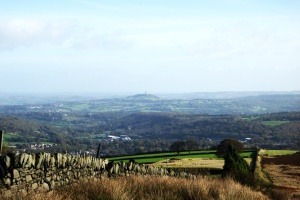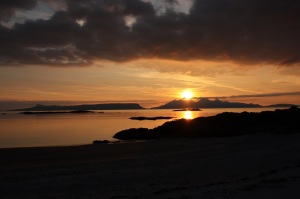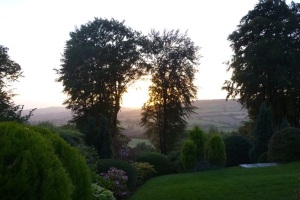On holiday by the sea in summer 2015 I came across a newspaper article on swimming tuition for adults which got me thinking that here was something I might benefit from.
The gist of the piece was the increasing provision at leisure pools for lessons from beginner onwards for those people who had never learned as kids, or not learned enough technique to make them effective swimmers.
Until that point I had thought myself an average swimmer – however, looking back on it I was actually a bad breaststroke swimmer – you know the type – head high up to keep the water off hair which had to go back to an afternoon session at the office. I even wore glasses in the pool! I could easily do 60 lengths but would come out of the water with a tight lower back and a sore knee wondering why I didn’t feel any fitter as swimming was touted as being good all round exercise. Indeed, the knee problem would persist for several days after a session so I didn’t swim more than once a week, dwindling to nothing unless on holiday in reach of a swimming lake or better still, the sea.
After reading the article, I checked out adult swimming lessons in my area and found there was indeed such a thing and duly signed up to the improver session, spending four weeks on a waiting list.The lowest point of that first session was admitting that I couldn’t actually complete a full length of front crawl – half that distance would leave me gasping like a fish and in abject despair. I dragged myself exhausted from the pool at the end of the session and vowed to remember everything we had been shown for next time.
I had soon invested a princely £19 on a pair of prescription goggles which were amazing! Swimming with good technique and no goggles leaves you with very sore eyes so consider them a must for starters. A swimming cap keeps the hair from getting tangled in the goggles (and the hair out of the pool filters). I used nose-pinchers for six months before I realised that to breathe effectively I had to clear my lungs using both mouth and nose before I could take a new breath. I also quickly ditched the stylish swimsuit with a skirt which billowed about and slowed me down!
Good swimming is effective co-ordination. In breaststroke the hands sweep the water away to the sides and behind and the frogleg kick ends in a glide. The head goes into the water to the brow so it is not possible to keep the hair dry! I learned that my kick was not even and that I threw my left leg out to the side putting stress on my knee. It has taken many months to kick that habit. Getting the streamlined glide right has eliminated the strain on my lower back. So far so good!
Getting the hang of the front crawl has been a much longer job complicated by my much less than effective set of lungs. We were taught to breathe on every third stroke (apparently to get us used to being able to use left or right in the event of waves or other swimmers) but I still found myself fading much earlier than the others. A change of tutor at the end of this year came with a revelation – that I could actually breathe every other stroke thus giving me much more oxygen to play with. Suddenly I was much faster and making real gains. The extra confidence piqued my interest in the possibility of achieving a promotion to the ‘Be a great swimmer’ class who train alongside us and power up and down the lanes, seemingly effortlessly.
The upshot has been visits to the competition pool twice a week for an hour at a time to work on my technique using hand float and pull buoy (sits between your knees) as well as the Saturday morning lesson. I’ve even invested in training fins but the need to avoid running other slower swimmers down from behind means I have to choose my times carefully – quiet lanes are the holy grail of every swimmer, fast or slow and are not generally available for long.
I spend time studying technique on Youtube which teach that the angle of the hands and the bend of the elbow to the sweep of the forearm is all crucial in front crawl as is the type of kick which keeps the body streamlined without being heavy on oxygen use.
All in all, the whole experience has been fascinating but I was unprepared for huge gains in fitness, particularly in the big jump in core strength which has eliminated ten years of lower back problems and the pain I had acquired in both knees as I sat or stood. I had wrongly attributed my poor joint health to the onset of middle-age and now seem to have reversed it.
The downside of all this is finding space in busy pools, accidentally ingesting lots of water, and the odd kick and scratch when I and fellow swimmers don’t avoid each other effectively enough. Oh, and the chlorine!
The last time I swam in the sea I had expected to be able to lazily power myself along like a channel swimmer. Unfortunately, the moment I looked down at the unknown depths beneath me with my fantastic goggles I chickened out imagining electric eels and Portugese Man O War appearing out of the gloom below and swam head up breaststroke for the rest of the swim. I need to work on that…!



